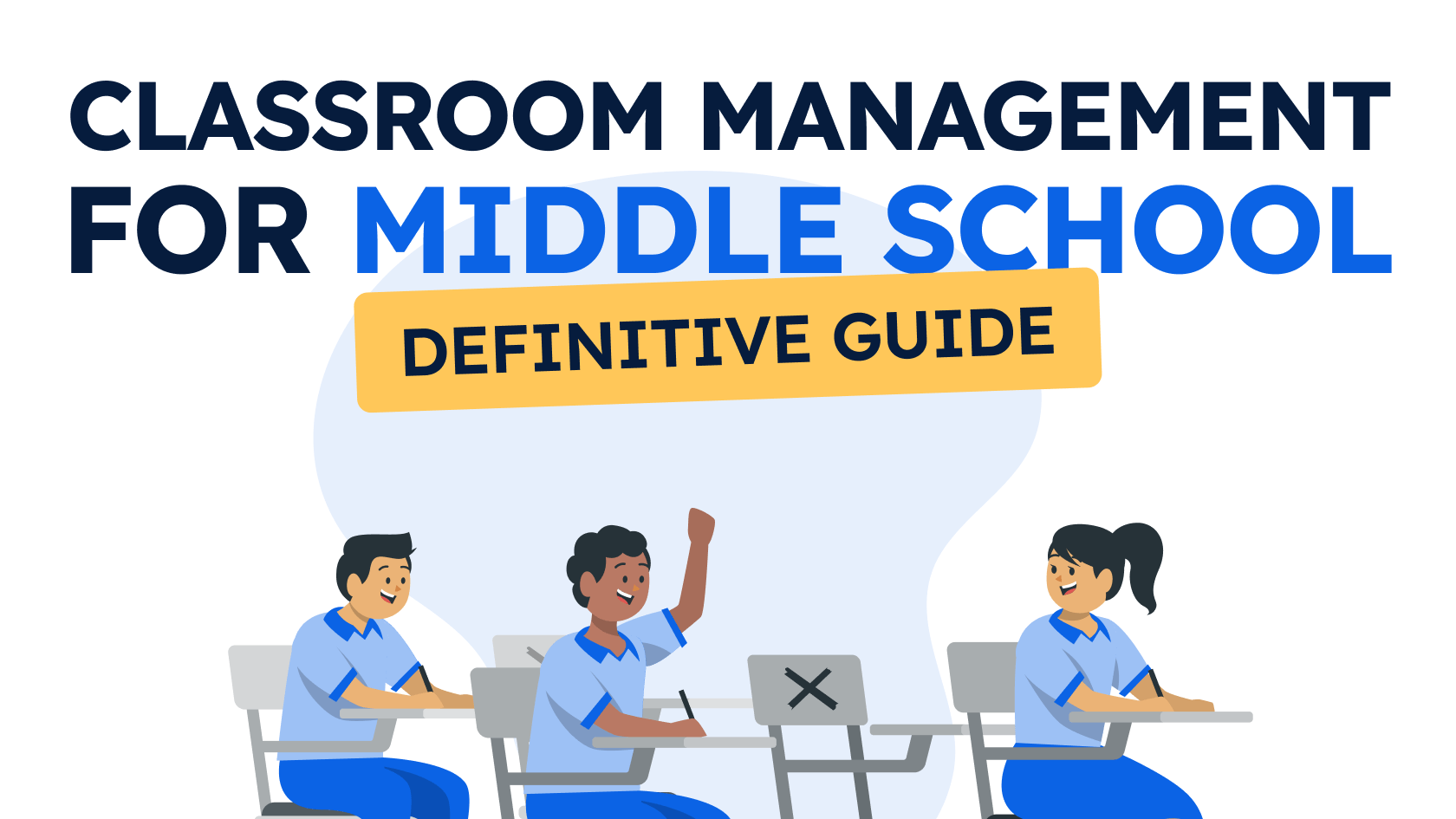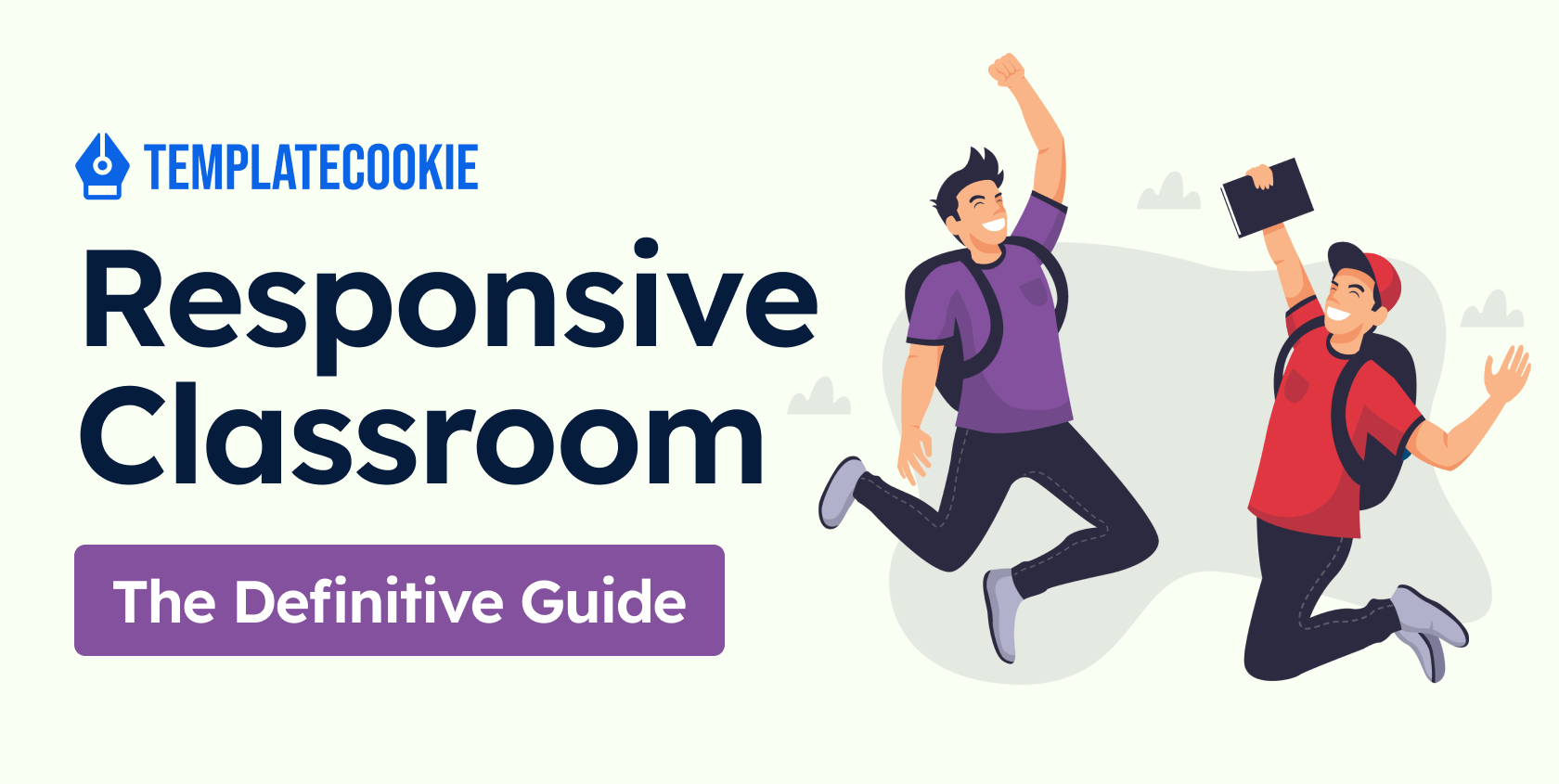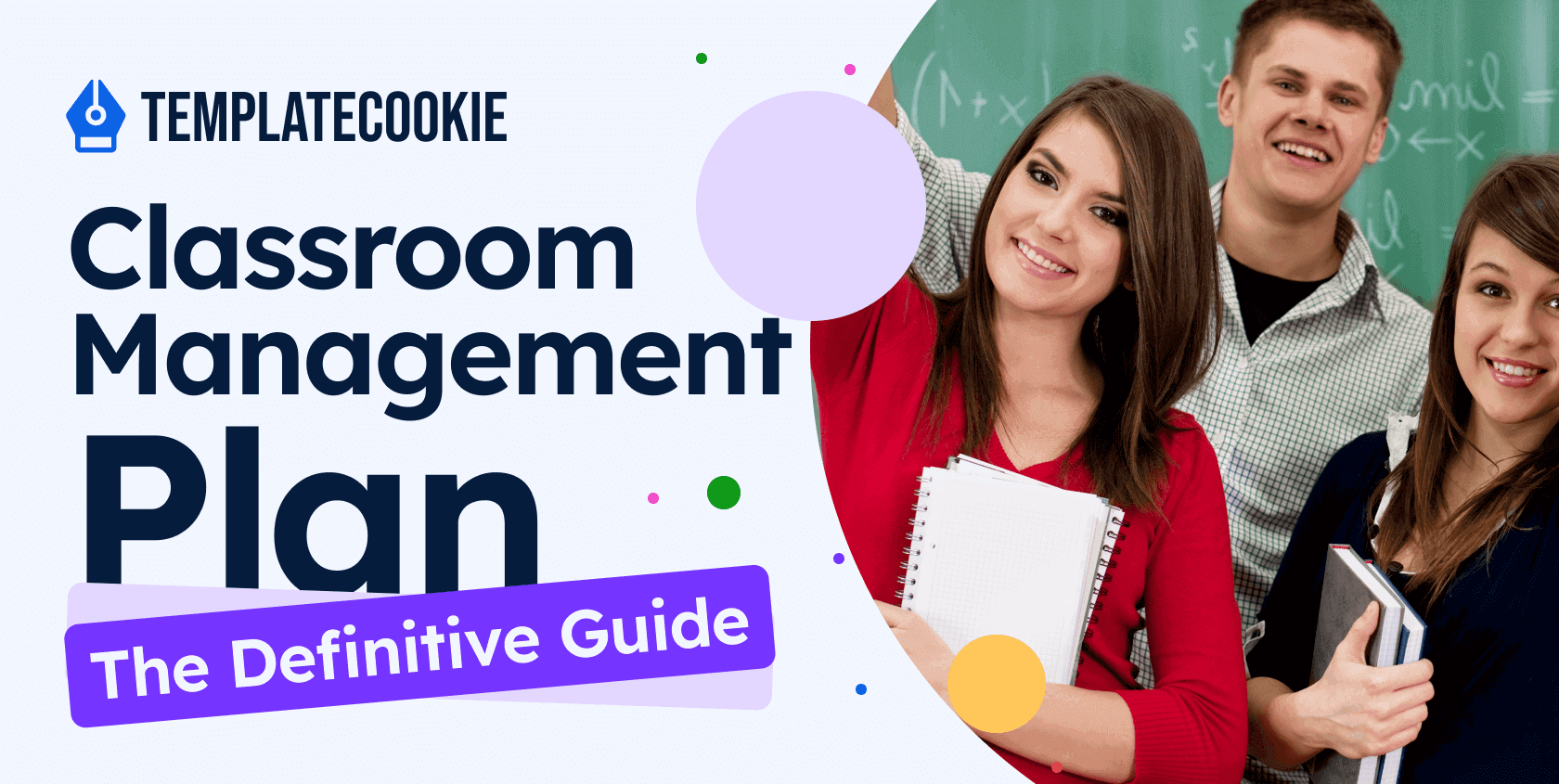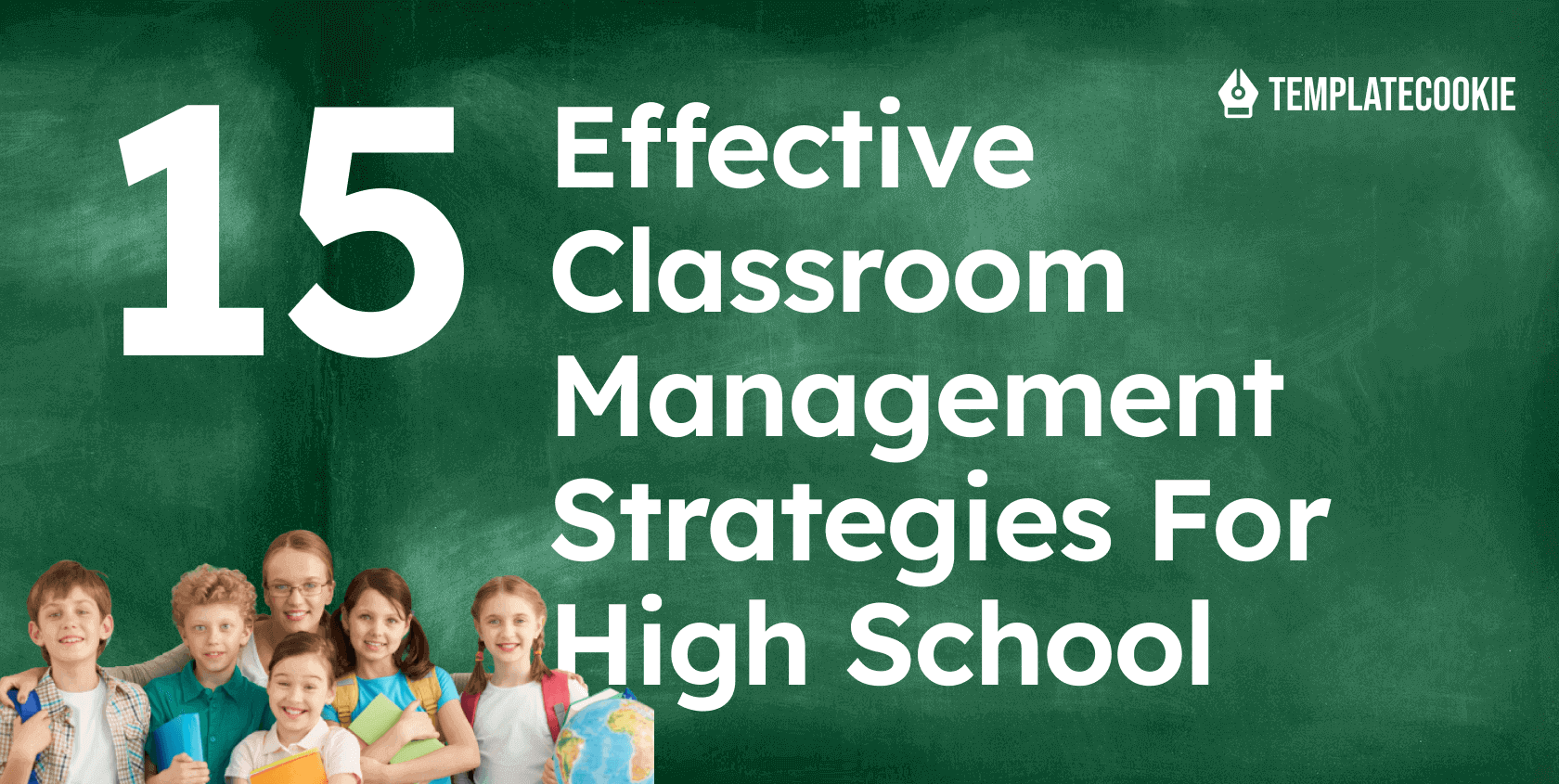Blog Details
Classroom Management For Middle School - The Definitive Guide

Classroom management is an essential aspect of teaching, and it can be especially challenging in middle school. As students navigate the unique challenges of adolescence, they may be more easily distracted, less motivated, and more prone to misbehavior.
Effective classroom management is key to creating a positive learning environment for middle school students and ensuring that they are able to reach their full potential.
In today’s blog I will share a complete guide on classroom management for middle school, strategies you need to effectively manage classrooms, and create a positive learning environment.
Increase your classroom efficiency with our Premium School Management System: Schooling
Definition of Classroom Management
Classroom management refers to the strategies and techniques that teachers use to create a positive and safe learning environment for students. It is the process of ensuring that the classroom runs smoothly, that students are engaged and on task, and that everyone feels respected and valued. Classroom management is a critical aspect of teaching, as it plays a key role in determining the success of the teaching and learning process.
Effective classroom management involves establishing clear rules and procedures, setting high expectations for student behavior, and consistently enforcing those rules and expectations. It also involves creating a positive classroom culture, where students feel comfortable expressing themselves and taking initiative. This can be accomplished by fostering a sense of community, creating opportunities for student collaboration, and providing meaningful and relevant learning experiences.
Classroom management also includes effective techniques for handling misbehavior, such as providing clear reasons for misbehavior and addressing any underlying issues that may be contributing to the problem. Additionally, classroom management includes the use of positive reinforcement, such as praise and rewards, to encourage good behavior.
Effective classroom management is not a one-time event, but rather an ongoing process that requires ongoing assessment and adjustment. Teachers must continually evaluate and adjust their strategies to best meet the needs of their students and to adapt to changes in the classroom environment. They should also seek feedback from students and colleagues, and be open to new ideas and approaches.
In summary, Classroom management is the process of creating a positive and safe learning environment where students can engage in meaningful and relevant learning activities, in order to reach their maximum potential. It involves a combination of rules, procedures, positive reinforcement, and the handling of misbehavior. It’s a continuous process that requires regular evaluation, monitoring, and adjustments.
Reasons Why Classroom Management is So Important in Middle School
Positive Learning Environment
Classroom management helps create a positive learning environment for students. When students feel safe, supported, and respected, they are more likely to engage in the material and be motivated to learn.
This means that the teacher is creating a classroom culture that is inclusive and welcoming to all students.
It also means that the teacher is using strategies to create an environment that is facilitative to learning, such as setting clear expectations for behavior and creating physically comfortable and organized classroom space.
Reduce Disruptions and Distractions
Effective classroom management can help reduce disruptions and distractions, allowing students to focus on the lesson and improve their academic performance.
This means that the teacher is using strategies to minimize distractions and interruptions, such as using a timer to help students stay on task, or using nonverbal cues to remind students of expectations.
It also means that the teacher is proactive in addressing behavior issues before they become major distractions.
Develop Self Regulation Among Students
Classroom management strategies can help students develop self-regulation skills, which are important for success in both school life and personal life.
Self-regulation refers to the ability to control one's own behavior, thoughts, and emotions. By using strategies such as a behavior chart, teachers can help students learn to monitor and manage their own behavior.
This can also help students develop skills such as problem-solving and decision-making.
Promote Positivity
A well-managed classroom can help prevent misbehavior and promote positive social interactions among students.
By setting clear rules and expectations and consistently reinforcing positive behavior, teachers can create a classroom culture that promotes respect and cooperation among students.
This helps students develop important social skills and create a positive classroom community.
Help Teachers Control The Class
Classroom management techniques can help teachers maintain control of the classroom and prevent challenging behavior from escalating.
This means that the teacher is proactive in addressing misbehavior and has a plan in place for managing it when it does occur.
It also means that the teacher is consistent in enforcing rules and expectations and is able to de-escalate situations before they become major disruptions.
Save Time and Energy
Effective classroom management can help teachers save time and energy by reducing the need for constant behavior management.
When a classroom is well-managed, there are fewer disruptions and distractions, which means that the teacher can focus on teaching and learning instead of constantly managing behavior.
This can help teachers feel more efficient and effective in their teaching.
Create Community
A well-managed classroom can help create a sense of community and belonging among students.
When students feel like they are part of a positive and supportive community, they are more likely to feel connected to their classmates and invested in their own learning.
This can also create a sense of belonging and purpose that can help students feel motivated and engaged in school.
Build Positive Relationship
Classroom management strategies can help teachers build positive relationships with students, which is important for student engagement and success.
By consistently reinforcing positive behavior and creating a supportive and respectful classroom culture, teachers can develop strong relationships with their students.
This also helps students feel more connected to their teachers and more infused in their own learning.
Major Reasons Behind Misbehavior of Students in Classroom
Lack of Clear Rules and Expectations
When students do not know what is expected from them, they may act out in an attempt to figure out the boundaries.
It is important for teachers to establish clear rules and expectations for behavior, such as raising a hand to speak or staying in their seats, and to consistently reinforce these expectations.
This can help students feel more secure and know what is expected of them.
Lack of Structure and Predictability
Students may misbehave if they feel that the classroom lacks structure or predictability.
Having a routine and using visual schedules can help students feel more secure and better able to predict what will happen next.
This can also help students feel more in control of their environment, which can reduce the likelihood of misbehavior.
Boredom or Lack of Engagement
Students may misbehave if they are not interested or challenged by the material being taught.
It is important for teachers to find ways to make the material engaging and relevant to students' lives, such as using hands-on activities or incorporating technology.
This will help students feel more motivated and engaged in their learning.
Lack of Attention
Some students may misbehave in order to get attention, either positive or negative.
It is necessary for teachers to find ways to give students positive attention, such as praising good behavior or providing individualized feedback.
This will eventually help students feel more valued and motivated to behave appropriately.
Emotional or Social Difficulties
Students may act out if they are struggling with emotional or social issues, such as low self-esteem or difficulty making friends.
It is crucial for teachers to be aware of their student's emotional and social needs and to provide the necessary support.
This can include listening to students and providing guidance, as well as referring students to school counselors or other resources as needed.
Lack of Appropriate Consequences
When students do not face consequences for their misbehavior, they may continue to engage in that behavior.
Teachers should have a plan in place for managing misbehavior and to consistently follow through with appropriate consequences.
This may include things like time-out or loss of privileges, depending on the severity of the misbehavior.
Stress or Other External Factors
Students may act out if they are experiencing stress or other external factors, such as family issues or problems at home. Teachers should be aware of these factors and provide support as needed.
This can include being a listening ear for students or referring them to school counselors or other persons for additional support.
Developmental Immaturity
Middle school students are still developing their social and emotional skills, and may sometimes act out due to their own immaturity.
Teachers need to be patient and understanding and provide support and guidance as students develop these skills.
This includes helping students learn to regulate their emotions, develop problem-solving skills, manage their own behavior, etc.
Top 12 Effective Middle School Classroom Management Strategies
Greet Students
One effective strategy for middle school classroom management is to greet each student as they enter the classroom.
This can be done by simply saying hello, asking how they're doing, or even giving them a high-five or fist bump.
This simple gesture sets a positive tone for the class and helps build a sense of community and connection between the teacher and students.
Keep Classroom Organized
A well-organized classroom can help to reduce distractions and disruptions, making it easier for students to focus on learning.
It can be achieved by keeping the room free of clutter, having materials and supplies easily accessible, and having clear labels and organization systems in place.
Be Clear About Rules
It is important to have clear and consistent rules in place for the classroom and to make sure that students understand and follow them.
These rules should be related to the specific behaviors that you want to discourage or encourage, and should be discussed and agreed upon with the class at the beginning of the school year.
Praise in Public, Correct in Private
This strategy involves praising students for positive behaviors or good work in front of the class while addressing any negative behaviors or mistakes in private.
This helps to maintain a positive and supportive classroom environment, while still holding students accountable for their actions.
Encourage Initiative
Another effective strategy for middle school classroom management is to encourage students to take diffrent initiatives and be responsible for their own learning.
It can be done by giving students choices and autonomy over some of their work, and by providing opportunities for them to lead and direct their own learning.
Give Rewards
One strategy for middle school classroom management is to use rewards to encourage positive behavior and motivation.
Rewards can be tangible, such as prizes or extra credit, or they can be intangible, such as recognition or praise.
The key is to make sure the rewards are meaningful to the students and that they understand the criteria for earning them.
Write Agenda on The Board
It is an effective strategy to write the agenda on the board every day as it helps students to understand what they will be learning and what they can expect during the class period.
This will help them to stay focused and engaged throughout the class, and also allow them to get prepared for the next task or activity.
Get Attention First
Before starting a lesson or class activity, it is important to get the students' attention. This can be done by using a signal, such as a bell or a whistle, or by calling out their names.
It will help the students to focus on the current task and avoid any unusual distractions or disruptions.
Build Excitement
A good way to keep students engaged and motivated is to build excitement for the content and lesson plans.
It can be done by making the material relevant and interesting, by using interactive and hands-on activities, and by incorporating technology or other multimedia.
Be Consistent
Consistency is a crucial factor when it comes to middle school classroom management.
It means being consistent in your expectations, consequences, and rewards, and also in your teaching style, lesson plans, and routines.
Being consistent helps students to feel secure, and they will know what to expect next. As a result they will be more focused and productive throghout the class.
Final Words
A well-managed classroom is essential for creating a positive and productive learning environment for middle school students.
By implementing effective strategies such as clear rules, consistent consequences, and positive reinforcement, teachers can help their students stay on task and focused on learning.
Additionally, by building a sense of community and connection with students, encouraging initiative, and making the material relevant and engaging, teachers can help their students feel motivated and excited about learning.
Ultimately, classroom management is a complicated and ongoing process that requires patience, flexibility, and a willingness to learn and adapt.
Read More

Responsive Classroom - The Definitive Guide
Responsive Classroom is an evidence-based approach to teaching that prioritizes the social, emotional, and academic development of students. It is designed to creat...
Read More
Classroom Management Plan - The Definitive Guide
Managing a classroom is a complex and multifaceted process that requires planning, preparation, and flexibility. A strong classroom management plan is crucial ...
Read More
15 Effective Classroom Management Strategies For High School
High school teachers and administrators face numerous challenges in managing their classrooms, from student disengagement to disruptive behavior. However, with effe...
Read More